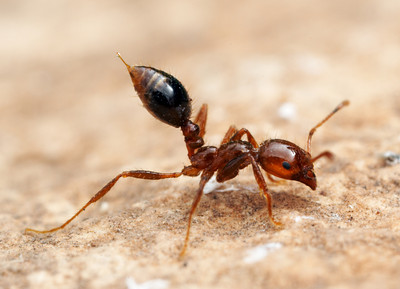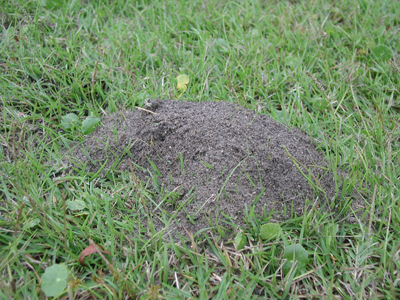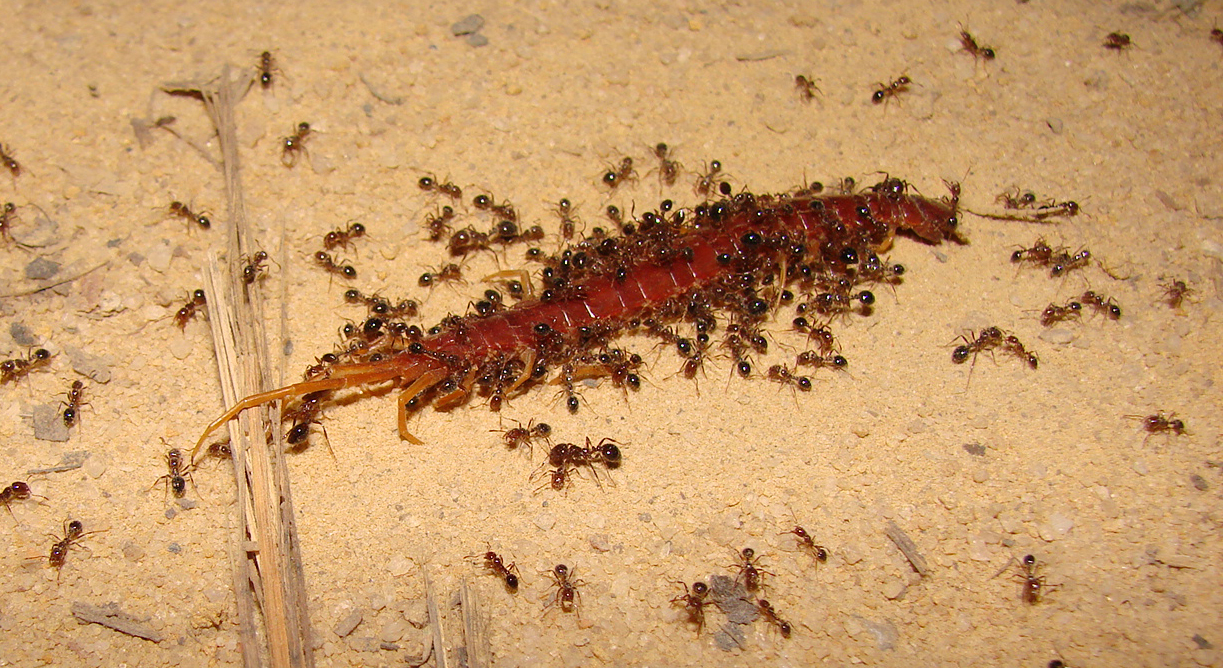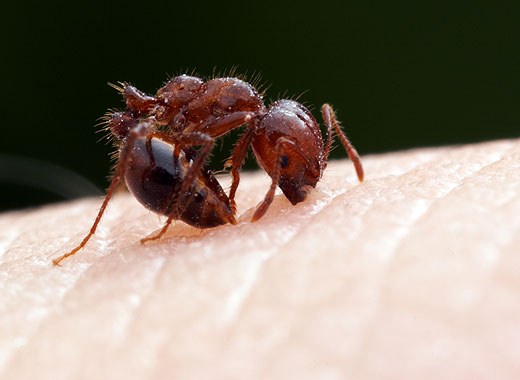 Being related to wasps, you can imagine that the sting that some ants can give you can and will be painful. In some cases, even deadly. If you are out hiking around it's likely that you won't always be prepared for every type of emergency that comes up either. The problem is that you usually don't even know you are being swarmed until it is to late. Getting on in years, my eyes aren't what they used to be and once I've been bitten, I'm usually so busy killing them and brushing them off to see what type has been attacking me. I have to take some responsibility as my curiosity usually has me looking up instead of what I am stepping into and I'm on their entrance and they are solely defending themselves from my big feet.
Being related to wasps, you can imagine that the sting that some ants can give you can and will be painful. In some cases, even deadly. If you are out hiking around it's likely that you won't always be prepared for every type of emergency that comes up either. The problem is that you usually don't even know you are being swarmed until it is to late. Getting on in years, my eyes aren't what they used to be and once I've been bitten, I'm usually so busy killing them and brushing them off to see what type has been attacking me. I have to take some responsibility as my curiosity usually has me looking up instead of what I am stepping into and I'm on their entrance and they are solely defending themselves from my big feet.
Ants are useful and wonderful creatures--until you get bitten by one of them. Though these insects are small, they pack a powerful bite or sting. Fire ants do feed upon young plants, but the direct damage that fire ants do to agricultural crops probably is offset by the benefits they provide by voraciously consuming insects that are far more destructive than are the fire ants themselves.
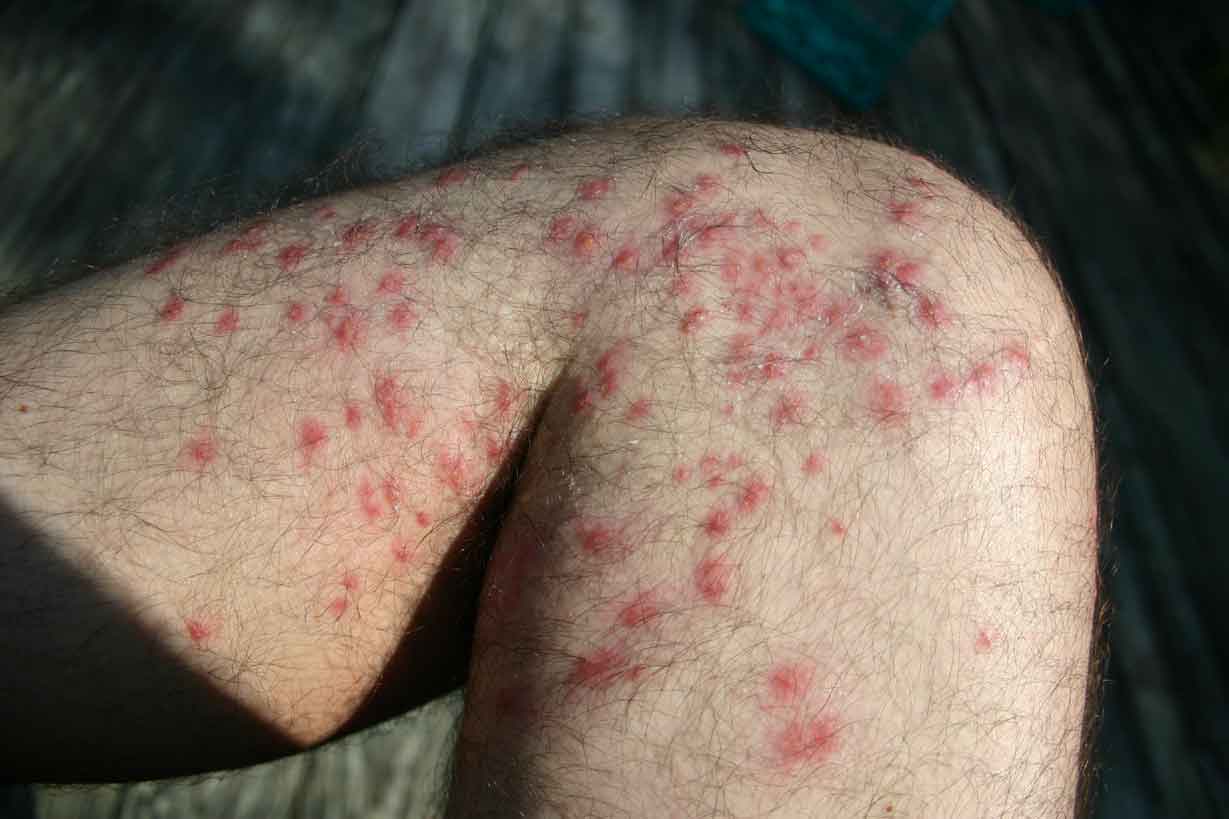 Depending upon the type of ant, they may even swarm and act aggressively, quickly covering their victim. Millions of people are bitten every year by ants, and knowing how to treat the bite is important. In most cases, there is just a little swelling, redness, and an itchy feeling around the bite. In extreme cases, anaphylactic shock can occur, which means the person's entire body over-reacts to the bite, causing swelling to occur in the mouth, throat, trachea, and lungs. Without prompt medical treatment, the person can die.
Depending upon the type of ant, they may even swarm and act aggressively, quickly covering their victim. Millions of people are bitten every year by ants, and knowing how to treat the bite is important. In most cases, there is just a little swelling, redness, and an itchy feeling around the bite. In extreme cases, anaphylactic shock can occur, which means the person's entire body over-reacts to the bite, causing swelling to occur in the mouth, throat, trachea, and lungs. Without prompt medical treatment, the person can die.
In any case, when you have been bitten or stung, the first thing you need to do when possible is to wash the bitten area with warm water and soap. Dry the bite gently. Then you deal with them with whatever you have at hand. Benadryl is always a good thing to have in your first aid kit. But below are several treatments with household items
Method 1: Vegetables and fruits are a great natural remedy for treating ant bites. For example, you can pour lemon juice directly onto an ant bite. The acidity from the lemon counteracts and neutralizes the acid in the bite. A slice of cucumber on the bite is also helpful, as well as a little bit of onion or a clove or garlic.
Method 2: Mix baking soda with water to form a thick paste. Apply the baking soda paste to the bite. This homemade treatment helps with itching and swelling.
Method 3: 20 Mule Team Borax is another great way to treat ant bits. You can soak the affected area in a tub of warm water diluted with 3 cups of the Borax. This should draw the poison out of the bite. Borax actually comes from the mineral ‘boron’. So, in effect, you are just soaking in a mineral bath.
Method 4: Aloe Vera – especially straight from the plant. If you can get your hands on one, just cut a leaf open, and squeeze its juice directly onto your ant bite. If you can’t get a leaf, the next best thing is pure aloe vera gel you get from a drugstore. It should draw any infection out of the bite.
Method 5: Take a pill of Benadryl if you have an allergic reaction to the bite (but make sure you don’t have any adverse reactions to Benedryl itself). A 25 milligram dose of Benadryl should do the job for any allergic reaction to the bite.
Method 6: Make a thick paste out of baking soda and water. Apply it straight onto the ant bite. Besides taking care of the pain, this paste should also help with the itching. This is also a great way to treat bee stings.
Method 7: Worcestershire sauce is another secret weapon against ant bites, which can also be found in the typical kitchen. All you need to do is cover the ant bite(s) with a piece of paper towel and soak it with the Worcestershire sauce.
Method 8: Another effective way for treating ant bites is to mix clay with water. Make a paste and spread it over the bite. This should soothe the pain, as well as the burning sensation from the bite. It should relieve the itching too.
Method 9: Put an ice cube onto the ant bite to reduce the itching and the pain. Right after that, apply peppermint oil to the bite; then lavender oil after that. Repeat.
Method 10: Apply a tea bag to the bite to neutralize the acid in it. The tannic acid in tea will do the job. Black tea is best for this.
Method 11: Apply ammonia to the ant bite. Also, you can apply hydrogen peroxide, then ammonia to the bite, alternately, with separate cloths.



|

